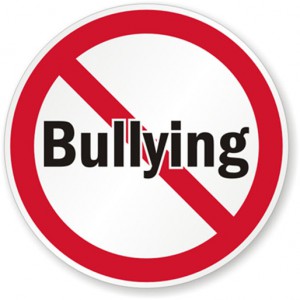Do nurses eat their young?
Renee Thompson asks. The answer may surprise you. “Nurses know we eat our young. Some nurses think it’s good to “toughen up” the new nurses. In reality it’s not. It decreases confidence and competence. “
 Renee Thompson, nurse, author, educator and advocate for workplace change, is making it her mission to bring bullying in nursing to light. She speaks nationwide to healthcare organizations and academic institutions on bullying. Thompson has witnessed behaviors ranging from “overt-screaming, yelling and openly criticizing in front of others to covert-sabotage, backstabbing and undermining.” Bullying can be as simple as “being nice to your face, but then complaining about you to other nurses all night” to as complicated as “gathering a “posse” against you.”
Renee Thompson, nurse, author, educator and advocate for workplace change, is making it her mission to bring bullying in nursing to light. She speaks nationwide to healthcare organizations and academic institutions on bullying. Thompson has witnessed behaviors ranging from “overt-screaming, yelling and openly criticizing in front of others to covert-sabotage, backstabbing and undermining.” Bullying can be as simple as “being nice to your face, but then complaining about you to other nurses all night” to as complicated as “gathering a “posse” against you.”
Seeds Planted During Nursing and Medical Education
Thompson speculates that medical and nursing school education may start the process. “Doctors and nurses learn separately, then are forced to work together without training. We wouldn’t do that with an all star basketball team,” Thompson says. “Respectful communication is a skill that can be learned and it is just as important as clinical knowledge.”
The Journal of Professional Nursing in 2009 published a study revealing medical-surgical units and critical care units had the highest frequency of bullying incidents at 23 and 18 % respectively. Bullying incidents occurred within nurses’ first 5 years of employment. Senior nurses were the highest percentage of perpetrators at 24% followed by charge nurses, nurse managers and physicians (8%).
study revealing medical-surgical units and critical care units had the highest frequency of bullying incidents at 23 and 18 % respectively. Bullying incidents occurred within nurses’ first 5 years of employment. Senior nurses were the highest percentage of perpetrators at 24% followed by charge nurses, nurse managers and physicians (8%).
Bullying can impact patient care. “Organizations with a high rate of bullying have worse patient outcomes. Many studies demonstrate bullying prevents nurses from asking for help and calling docs at 3am,” Thompson observes. “I know some nurses who feel they can’t rely on co-workers if they need help for patient.” Nurses who are bullied suffer physical, emotional and mental distress which is disabling and they are not able to effectively care for patients. “Bullying is pervasive, destructive and nurses are suffering all over the world. I know because they call me!”
Be Aware and Speak Up!
“Awareness is vital to change. The first step for organizations is awareness. You have to know how bad it is first before you can take action,” she says. “We get numb to bad behavior, accepting it as normal. Too often we believe what the bully tells us.”
The most powerful intervention to stop bullying, she notes, is for witnesses of bullying to speak up.
“We need to teach people how to establish peer-to-peer accountability. A simple way is to just starting naming behavior. ‘You are screaming and yelling at me in front of others.’”
Have you as a patient or caregiver seen nurses bullying other nurses? Have you as a patient or caregiver seen physicians bullying nurses? Have you experienced bullying as a nurse? Do you think naming the behavior as bullying will make a difference? Please share in the comments section.






See bullying everyday. Usually a nurse to nurse or M.D. to nurse however I believe a lot of the attitude is coming from the higher end of the company ladder. The “middle management” call nurses out on a daily basis. Ive seen the so called leaders question nurses on procedures at bedside with fam and pts present and facility percentages of things like vAP, the med-surg or tele nurse won’t come close to knowing that but the “leader” continues to belittle her at bedside. This should never happen at the bedside. That’s just one incident. I find it sickening how these mid managers or shift leader treat the ordinary bedside nurse. I am currently working on a unit that is like walking to the firing squad every nite because of the shift managers. Every night is a show of who is in control. There is ALWAYS a confrontation with management just to get someone off your case so you can do your job and take care of the patients. After any nurse stands up to them they back off. This is just completely inexcussabk.
It is so important that you are speaking out here to let people know what is happening in the healthcare workplace. Thank you so much for commenting. I hope that shining a light on the stress that you and many nurses are facing will make a difference!
Unfortunately my cousin, who would have made a great nurse, left the profession after she completed her training because of the bullying. The work is tough enough without getting badgered everyday.
Kate, I’m so sorry that you cousin had to leave the profession for which she trained. This is one of the many costs of bullying in the healthcare setting! Thank you for sharing this.
This is particularly relevant as I prepare for a workshop with nurses whose get the worst ratings in patient satisfaction surveys. The theme is “Dignity” – a concept as vital and important amongst nurses, as between nurse and patient.
Bullying erodes dignity.
Thanks, too, for daring to state: ‘nurses eat their young’
I completely agree and thank you so much for commenting Kathy!
I remember when my baby was in the NICU, one night she had a nurse that was new. She seemed quite unsure of herself but I didn’t mind. There were a handful of seasoned professionals around to rescue her if needed. Everyone has to learn at some point. At the time, I didn’t realize the potential added stress she may have had in addition to caring for a critically ill infant.
Nursing is not alone, I think many professions bully their newbies. It’s sad really.
Often when a staff member brings attention to a serious bullying situation the upper management will refer them to H&R and the union reps where the ball stops and the bullying can become more aggressive. False reports are filed sometimes to put subordinate nurses down and the work environment becomes a bully’s play ground. Even in cases where previous bullying had been reported about a person in charge, the situation was allowed to proliferate.
I’m a rare duck: former medical student, current nurse. Medical school on the floors was far more abusive, with sleep deprivation (imagine 36 straight hours awake every few days) & pressure to treat patients as cattle, frankly. By the time I attended Nursing school I’d been through all that and Psych work for years. I’ve long ago learned how to avoid bullying, and if need be how to punish them and convince them to stop. Far too many lack such tools, and there are too many Nurses, bitter and burnt out, who see cruelty as somehow their right by seniority. Such a view is a cancer on our profession that we must excise, buy all means necessary. All my experience with bullying has taught me one lesson: power is the key. Not education, but power. Overawe a bully and they stop, promptly, until the very moment it feels safe to bully again.
As a nursing leader I am so sick and tired of hearing about bullying. I have to agree that I think it starts from the top down. It is so unfortunate that I nurses are treated the way they are, not only by fellow nurses and doctors and pharmacists by the patient and family. We have to ask ourselves what we are creating and in healthcare we have to stop blaming the front line for things that I really do believe this is a nursing leadership problem. We’ve had for years and years and years old school nurse leaders need to change the behavior and realize that the nurses do not work for them, the nurse leaders work for the staff. Without the staff nurses nurse leaders would not have a job, a role or a paycheck. I think we all need to wake up. We need to respect them and let them do their job.
Well, nurse bullying is a growing problem in the medical field. Yet “ nurse bullying” has evolved into something that is more complicated and one that needs serious attention. I have heard of many stories about nurses changing their career and cease giving care due to nurse bullying. What is worse, “Nurses eat their youngs” is now an understatement where not only senior nurses are being found bullying rookie nurses.